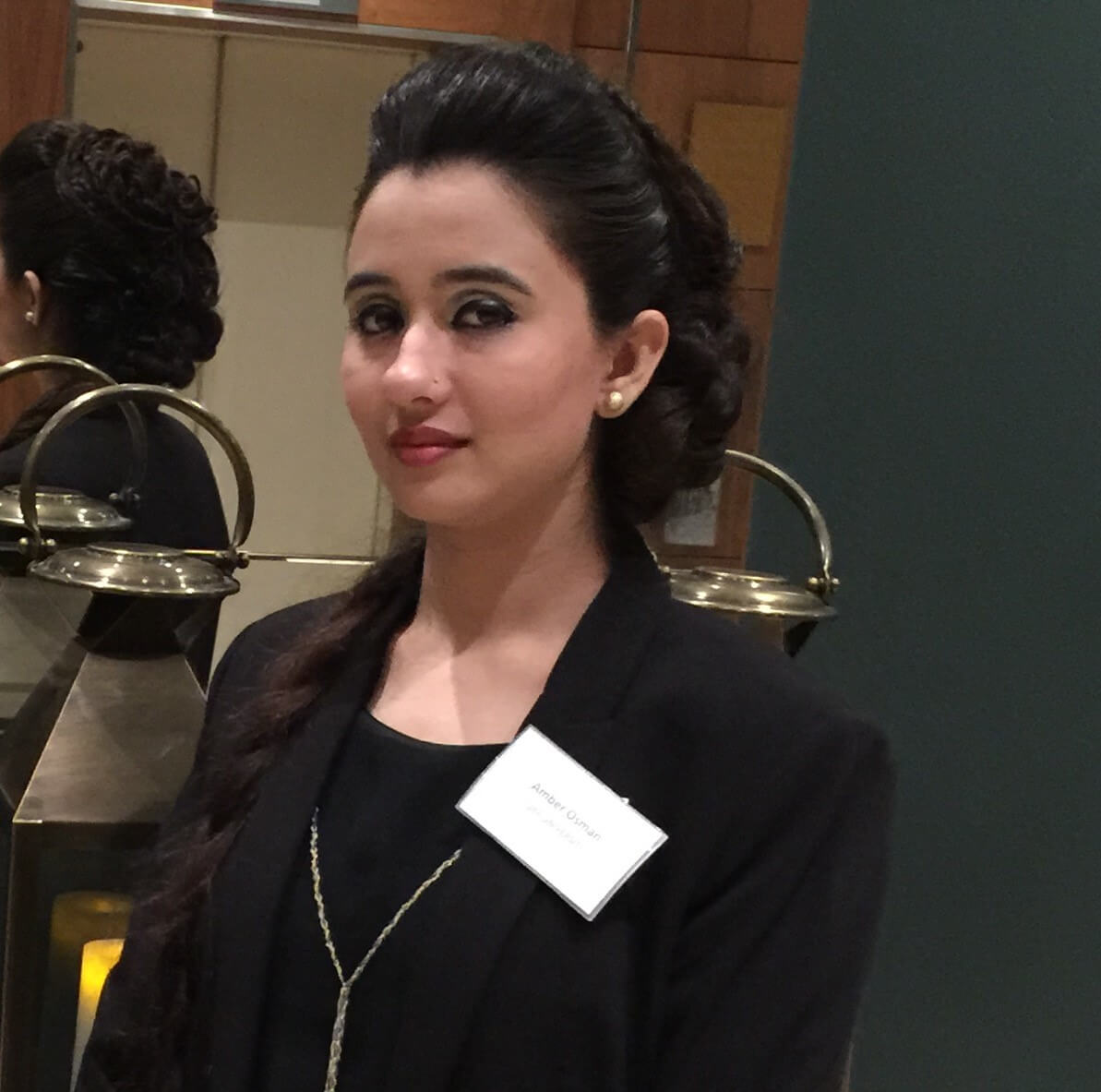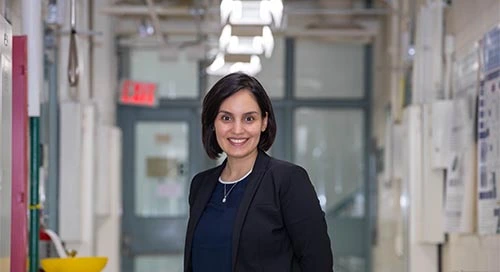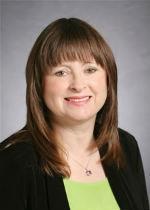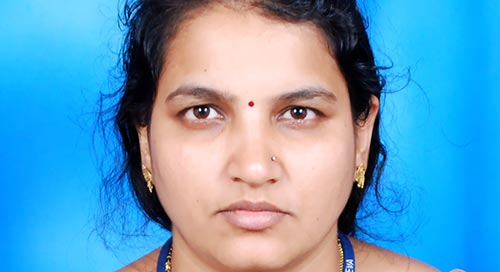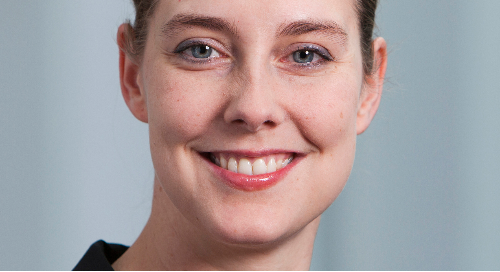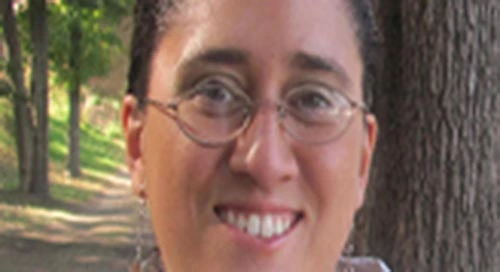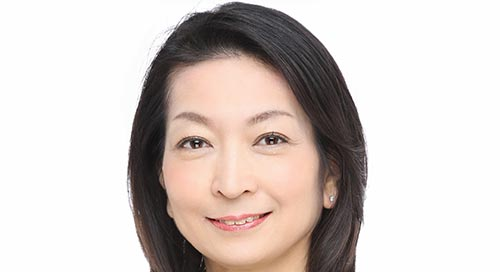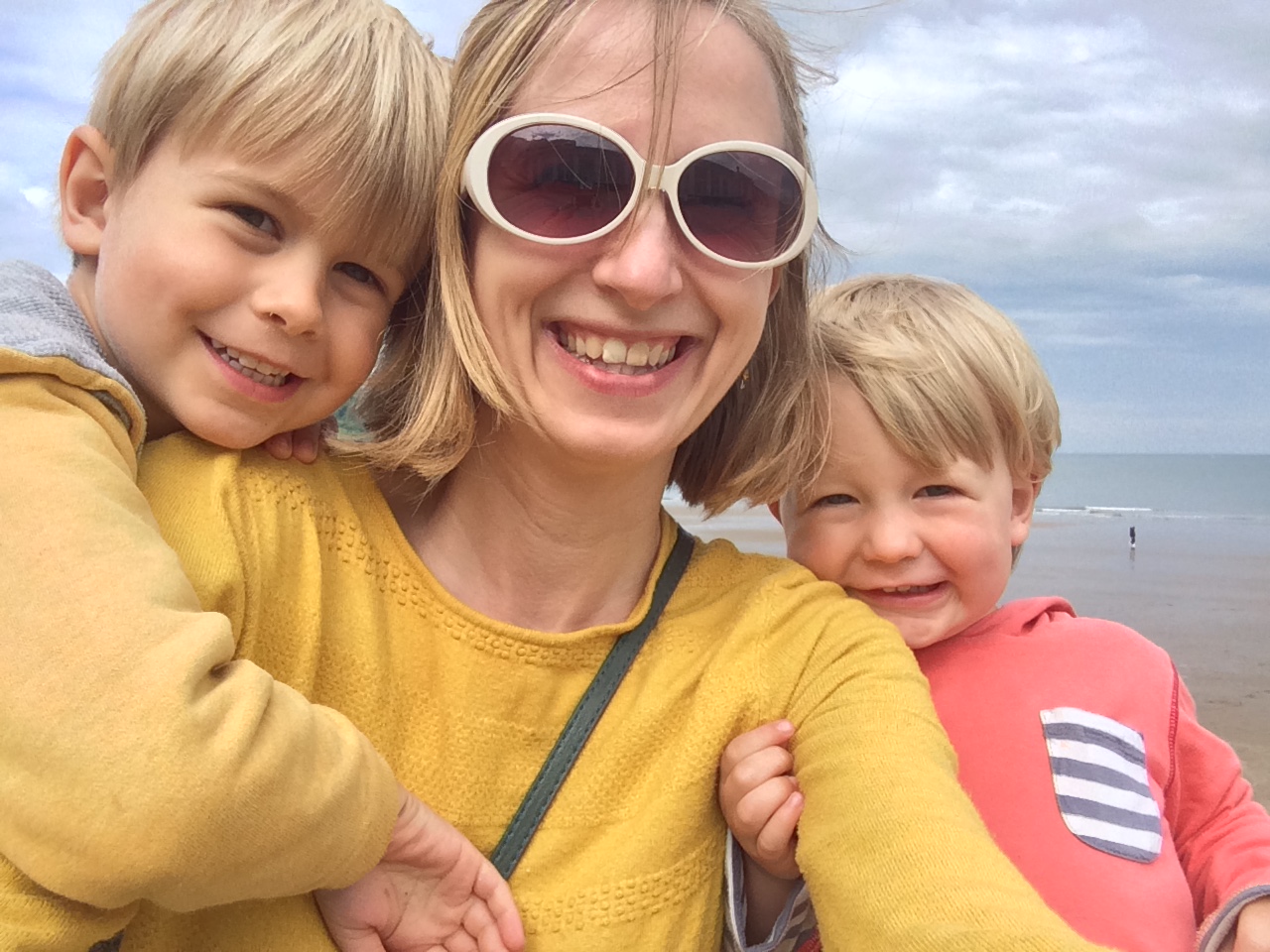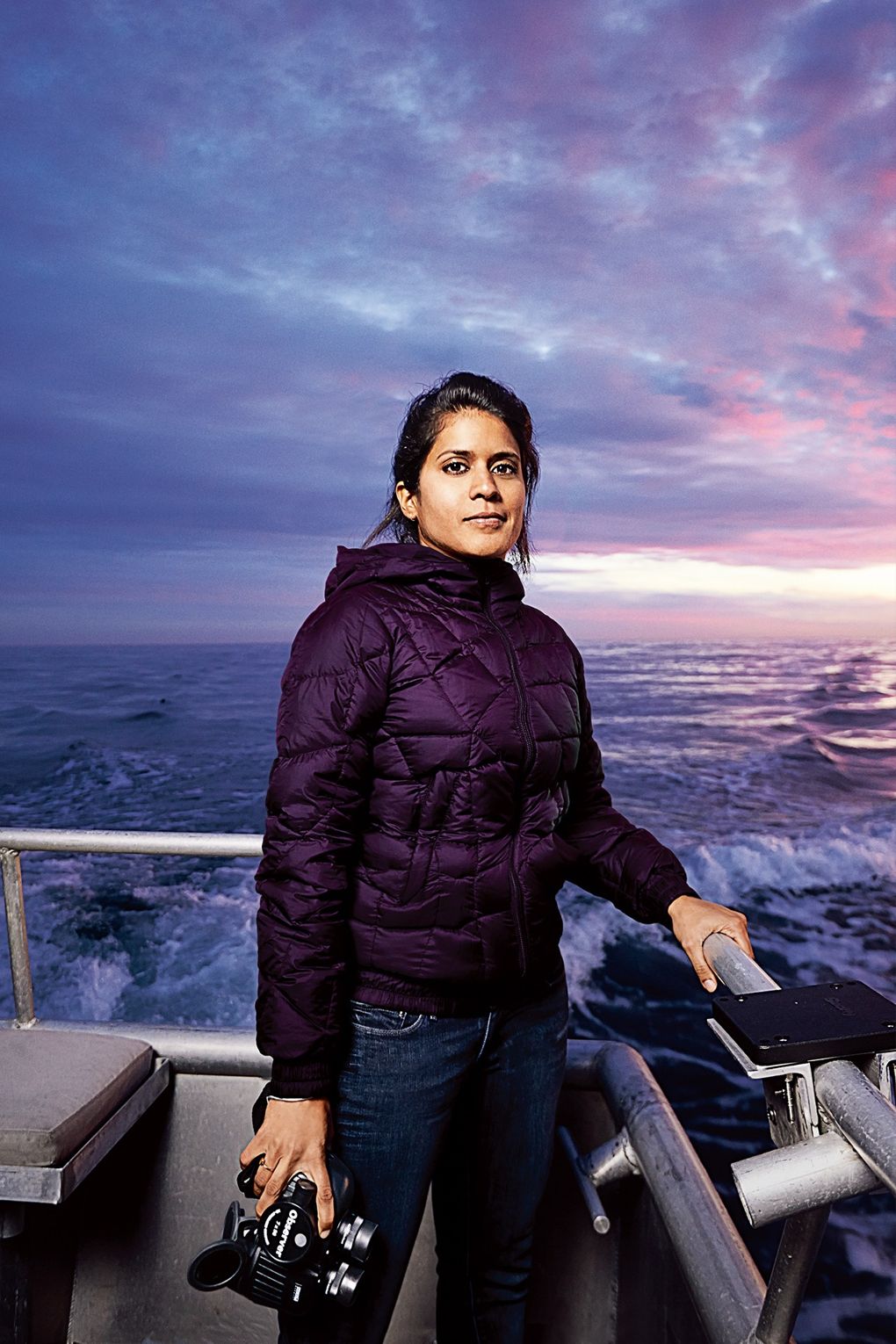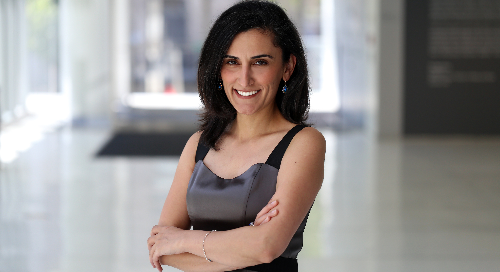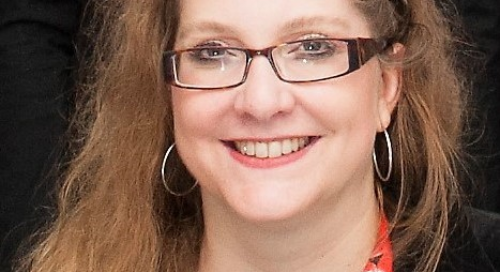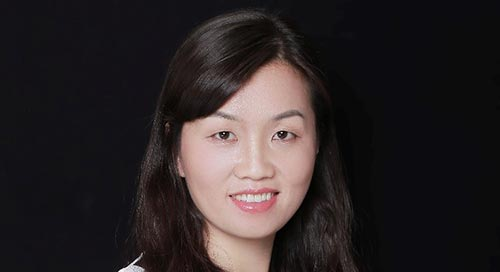a-day-in-the-life-of-a-business-researcher-meet-amber-osman
March 29, 2019
Q. Please tell us about your area of research. How and why did you enter the field?
A. I have a wide range of research interests including Business,& Economics, Marketing, Consumer Patterns & Behavior, Entrepreneurship and Management and I’ve published in a number of renowned journals on these topics.
I entered this field by chance while completing my MPhil dissertation. Initially I wanted to start my career and I was looking for a job in line with my interests and field of study. I was consistently praised by my professors for having a talent for research writing, presenting effectively to an audience, and coming up with creative concepts for marketing specialization projects. Just when my convocation for the degree was announced, I was asked by the MPhil and PhD program head to join the university (Iqra University; I attained my degree from the same institution) as a Research Assistant for the inception of a new research office. At first I hesitated, thinking that research is probably not my cup of tea and remembering my never-ending thesis work. While the volume of work was horrifying to me, it also taught me a lot and played a significant part in shaping who I am now. As soon as I joined the research field I started loving every day of work, and it became obvious that I needed to continue with this exciting profession.
Q. What does your typical day look like?
A. While at the Office of Research Innovation and Commercialization(ORIC) at Iqra University, I worked six days a week, a minimum of eight hours each day managing the research program and processes-including conducting training sessions for research faculty development and capacity-building programs for students. on research practice.
I also spent time supervising research students and engaging them in fundraising campaigns via industrial projects (e.g. Corporate Social Responsibility).
Other days were devoted to drafting research policies and handling Intellectual Property management for new inventions by students, scholars and faculty for commercialization purposes. I also managed the website and software daily to ensure both were working effectively for researchers and faculty.
In my capacity as Managing Editor of South Asian Journal of Management Sciences I conducted evaluations of research proposals for various funded grants, as well as quality, plagiarism and assessment checks. I helped with formatting of research articles for both faculty and students and oversaw the editorial process and online management system.
A typical day also usually included some time for working on my research writing, participating in various international conferences, workshops, seminars and webinars as well as user testing projects for Wiley, Cambridge University Press, Thomson Reuters, Publons, Times Higher Education, Elsevier and many more, which I’m still a part of.
For the past year and a half, my work day includes management of Trade Mark Search, drafting Patents in consultation with Senior Counsel, and extensive research on existing patents for infringement and inventions. I handle all clients’ creation queries and provide various formal Filing of Applications before the Pakistan Patent Office and Trademarks Registry daily. While working in an IP firm, I still conduct research writing and collaborate with the international research community, staying up to date via online research platforms.
Q. What impact are you hoping to make with your work?
A. The Prophet Muhammad (PBUH) said: “Whoever travels a path in search of knowledge, Allah will make easy for him a path to Paradise” (Sahih Muslim, 2699) hence, the first impact I want to create is on my life. I want to follow the path of education and learning and to spread the same to the education and research community.
Research is always evolving and making a difference in the world. I want to contribute to this impact through my own research to create a better tomorrow.
Q. In 2015 you won the Thomson Reuters ScholarOne Vision Award. Can you tell us why you were recognized with that honor?
A. I was the Managing Editor of South Asian Journal of Management Sciences (2009-2017). At the time I was charged with the task of re-launching the journal and helping it conform to International Research and Publishing Standards, as its status prior to that time was bleak. It was the same time that the university was transforming to a research-led, entrepreneurial education program and I was also part of building the research office with the support of my immediate boss and the top management. I treated this responsibility as my “baby” and worked day in and day out to make a mark. With the full support of the journal’s Editor-in-Chief (Dr. Muhammad Imtiaz Subhani) we did brand activation for the journal, re-starting it from scratch.
We began establishing new systems for the journal by adapting to new technologies and attending trainings. Gradually. the journal’s reputation began to improve, which was followed by its indexing by a respected indexing agency. We managed to align the functions and activities of the SAJMS to ethical research standards.
My passion was for this journal to reach the quality necessary to compete on the global stage and it happened with the blessings of Almighty Allah. In 2013, the South Asian Journal of Management Sciences won the Silver Plaque (Second position) by Thomson Reuters ScholarOne Triathlon Competition. for its agility, efficiency and endurance (attributes of a truly high-quality journal).
Then, in 2015, I received the Thomson Reuters ScholarOne Vision Award (3rd Place), for the journal and that was the culmination of all the effort we had put in to growing the journal’s prestige and potential. The Thomson Reuters competition and award is the best evaluation and assessment of a research journal's performance and integrity, so it holds a priceless value in the research and global arenas.
I was speechless, really! It was unbelievable indeed. It is the pride of our country, Pakistan, our organization, and us as individuals that our journal was recognized with this honor. Our sincere efforts over the course of six years allowed us to reach that milestone. To be escalated and acknowledged on that platform, in the presence of scientists, renowned scientific societies, publishers and associations who’ve made significant contributions to new discoveries, was profound.
Q. What’s the most challenging part of your work? Do you encounter unique challenges as a female researcher in Pakistan?
A. The most challenging part of my work is the environment around me. By environment I mean the industry. As a female researcher in Pakistan, I have faced no particular gender biases but I have faced troublemakers getting in my way and impeding my success. This is the most challenging part of my work. As I said earlier, I am a self-starter and push myself to my limits to perform my responsibilities with sincerity and integrity.
Another thing I would like to mention as a challenge is the prevalence of predatory publishers. To combat this problem I take it upon myself to highlight some of the journals/conferences I come across and report to the renowned Indexing agencies because in Pakistan I see early career researchers, students, research scholars and even faculty members falling prey to these entities. It can be difficult to identify the authenticity of predatory publishers for one, and secondly, some individuals also knowingly opt for these fake publications just to reap the professional rewards, without realizing that it’s highly offensive and career damaging. The list of Predatory Publishers by Sir Jeffery Beall was highly commendable in this regard. I know indexing agencies have taken out the black and white lists of journals but they are subscription or cost based. Universities, Publishers and Research policy makers should come together and provide access to such content to eradicate the issue at its core.
Q. Can you tell us about your peer review experience and why you think it’s important to participate in peer review?
A. Peer review has become an integral part of my research profile and so far my experience as a peer reviewer has been positive. I always agree to review manuscripts in relation to my area of research and devote time to peer review in order to build my intellectual capacity and associations as a reviewer with various journals and publishers.
The relatively new concept of transparency in peer-review is an excellent step by stakeholders and policymakers because it promotes a greater responsibility on the part of the reviewer to perform an honest review for each manuscript.
During my tenure as an editor, we used to face issues such as lack of availability of reviewers or late reviews. I believe recognizing reviewers, as Publons does by associating renowned leading publishers/journals with reviewers, sends the message that peer review is important.
Today when fake science and predatory publishing in on the rise, peer review will play a vital role by gradually decreasing predatory publishing and unethical practices in scholarly research. Peer review also builds up the researcher’s profile and becomes a stepping stone for academic job opportunities. At the same time, it builds up the reviewer’s critical thinking skills.
Q. What do you enjoy doing in your free time?
A. In my free time, I love to spend time with my family and friends, I’ll plan a vacation if I get a long stretch of time off. If it’s a short break, then I’m usually watching movies or listening to music and playing with my dogs one of my childhood passions! I’m also into technological gadgets so I try to take some time to learn about them and put them to good use! I’m also fond of video games and I’m a shopaholic as well. As far as reading is concerned, research content always catches my attention, so I love reading research when I have the time.
Q. What advice would you give to researchers who are just starting out?
A. I see fresh research students and scholars looking for shortcuts while doing research but there is no shortcut to it. Research requires dedication and passion and if you are a strong believer in doing hard work then this is your calling. There are always ups and downs but if you concentrate and consistently keep moving forward you will gain rewards in the long term.
I also see researchers take part in predatory publishing to increase their publication count which is unethical, but they don't know how damaging it is for one’s profile. Again, they’re searching for shortcuts and fake fame while offering no contributions to knowledge. Hence, my sincere advice is to stop wasting time, energy and intellectual capacity on this malpractice.
Thank you Amber!


